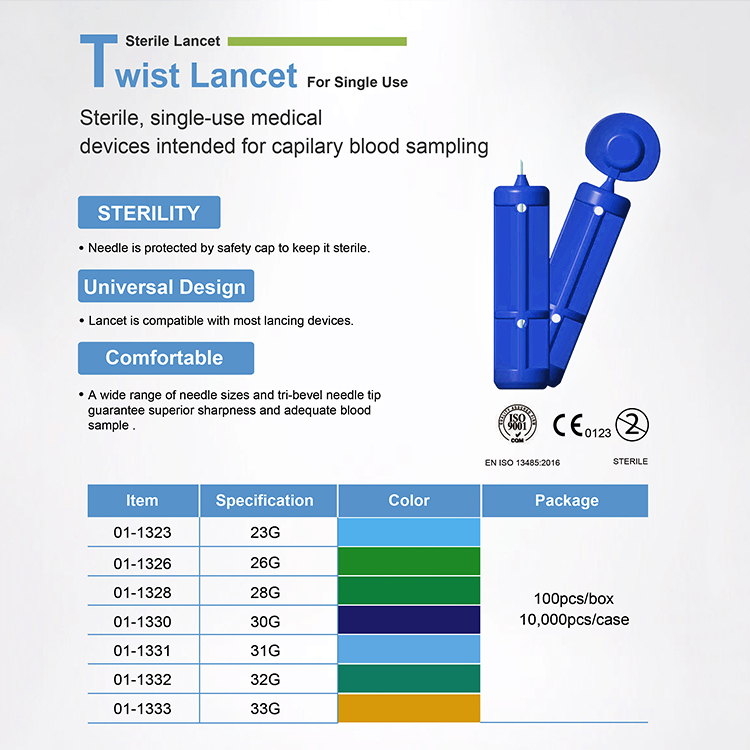ਦਸੰ. . 15, 2024 01:50 Back to list
Wholesale Testing Solutions for HIV, Hepatitis B, and C in Healthcare Settings
Wholesale HIV, Hepatitis B, and C Testing A Vital Resource for Public Health
In recent years, the prevalence of HIV, Hepatitis B (HBV), and Hepatitis C (HCV) has raised significant concerns among healthcare professionals and public health authorities worldwide. These viral infections are responsible for millions of deaths annually and pose substantial challenges to healthcare systems. As the demand for testing for these viruses increases, wholesale testing solutions have emerged as a pivotal resource in improving access to diagnosis and treatment.
Understanding the Importance of Testing
Testing for HIV, HBV, and HCV is crucial for early diagnosis, treatment initiation, and the prevention of transmission. The World Health Organization (WHO) estimates that over 37 million people are living with HIV globally, while approximately 257 million individuals are infected with HBV and around 71 million with HCV. Unfortunately, a significant proportion of these individuals remain unaware of their infections. This lack of awareness can lead to increased morbidity and mortality, further exacerbating public health concerns.
The Role of Wholesale Testing Solutions
Wholesale testing solutions offer a streamlined approach to provide affordable, accessible, and efficient testing services. By sourcing tests in bulk, healthcare providers can significantly reduce costs, making it easier to integrate testing into routine healthcare services. This is especially important in low- and middle-income countries, where healthcare budgets are often limited.
Moreover, wholesale testing improves the availability of rapid testing kits, which are essential for facilitating immediate results. Rapid tests allow healthcare workers to conduct screenings in various settings, including clinics, community health centers, and outreach programs. This flexibility encourages individuals who might otherwise avoid traditional testing environments to get tested, breaking down barriers to diagnosis.
Benefits of Combination Testing
One of the significant advances in the field of viral testing is the availability of combination tests that can detect multiple infections at once. For instance, tests that simultaneously screen for HIV and Hepatitis B or C can streamline the testing process, allowing healthcare providers to address multiple health concerns in a single visit. Combining tests not only increases efficiency but also enhances the likelihood of early diagnosis and treatment initiation.
wholesale hiv hepatitis b and c test

Enhancing Public Awareness
The success of wholesale testing strategies also hinges on public awareness campaigns. Educating communities about the importance of testing for HIV, HBV, and HCV is essential to encourage individuals to seek testing services. Awareness initiatives can reduce stigma associated with these infections, empowering individuals to undergo testing without fear of discrimination.
Public health organizations should work collaboratively with local communities to promote testing services. Mobile testing units, health fairs, and educational workshops can significantly impact testing rates by reaching populations that are often underserved.
Addressing Challenges in Testing
While wholesale testing presents many advantages, several challenges remain. The quality of testing kits varies, and it is vital to ensure that the tests provided meet international standards. Regulatory oversight and proper training for healthcare providers are essential to mitigate the risks of false-positive and false-negative results.
Additionally, assuming access to treatment for those who test positive is crucial. Testing programs must be paired with treatment access to ensure that individuals who receive a positive diagnosis can begin the necessary medical care promptly.
Conclusion
Wholesale testing for HIV, Hepatitis B, and Hepatitis C represents a critical development in the fight against these viral infections. By making testing more accessible and affordable, healthcare providers can promote early diagnosis and treatment, ultimately reducing the burden of these diseases on individuals and healthcare systems alike. As awareness and education initiatives continue to grow, the integration of wholesale testing into public health strategies will be vital in achieving better health outcomes for affected populations. Collaborative efforts involving governments, healthcare providers, and community organizations will ensure that the benefits of wholesale testing are maximized, paving the way for a healthier future.
-
Dengue NS1 Rapid Diagnostic Test Kit
NewsMar.07,2025
-
Dengue NS1 Rapid Diagnostic Test Kit
NewsMar.07,2025
-
Dengue NS1 Rapid Diagnostic Test Kit
NewsMar.07,2025
-
Transferrin Rapid Test Cassette Tumor Marker TF Card
NewsMar.07,2025
-
Malaria Pf Pan Rapid Diagnostic Test Kit
NewsMar.07,2025
-
malaria pf / pan ag rapid test
NewsMar.07,2025

